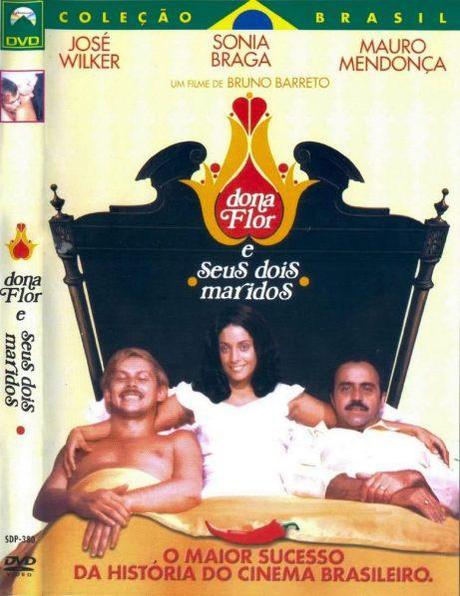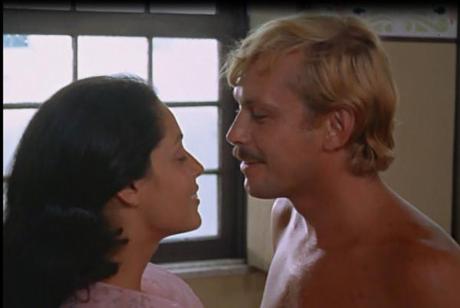The well-known actor, director, movie, theater and television personality died Saturday in Rio at age 66

José Wilker (www.bms.co.in)
T.S. Elliott once wrote that “April is the cruelest month.” He wasn’t joking! In the span of a single weekend, the entertainment industry was rocked by the loss of two of its favorite sons: the passing of ageless funnyman and jack-of-all-trades Mickey Rooney, who died Sunday of natural causes, was preceded by Brazilian actor-director José Wilker, who experienced a fatal heart attack on Saturday morning.
About the iconic Mr. Rooney, little can be said that hasn’t already been stated — and better — by other writers. He lived a long and fruitful life, both inside and outside his chosen field. That he reached his 93rd birthday is a blessing in itself, but those four score and thirteen years were incredibly diverse ones. As far as his many fans are concerned, Mickey’s earned the right to his eternal rest.
As for Wilker, what can I say? I’m saddened, of course, by his untimely demise. Although we never met, I invariably came away from his film and TV appearances with the feeling that I’d like to know this guy better: that puckish grin that seemed to imply he knew a lot more than he was letting on; those oriental-like eyes that betrayed an underlying Slavic streak to his makeup; and that baritone voice that lulled unsuspecting moviegoers into taking Zé Wilker at his word.
Who wouldn’t want to spend an afternoon in conversation with a man like that? As I understand it, he was a most considerate and erudite individual in real life. That being the case, I would gladly have welcomed the opportunity to exchange ideas. And not only was Wilker a fascinating subject for an interview, he was an attentive interviewer as well. Oh, the stories we would’ve told one another!
A Two-for-One Special

DVD Cover of Dona Flor and Her Two Husbands
One such story would be my first encounter with the gifted actor, which came in 1978 with the American release of Bruno Barreto’s Dona Flor e seus dois maridos (Dona Flor and Her Two Husbands), one of whom — a lovable rogue named Vadinho — was taken by Wilker.
The film opens on a Sunday morning in Salvador da Bahia, in the northeast corner of Brazil. It’s Carnival time in the early 1940s. A handful of rowdies, among them the boisterous Vadinho, have been whooping it up till the predawn hours. Suddenly, one of the merrymakers spots a nearby mulata twitching her bottom in time to the music. With that, the revelers form a dance circle around her. Vadinho, dressed as a baiana, flips open his “skirt” and displays a makeshift male appendage.
After cavorting in this manner for a few minutes, Vadinho runs out of steam and collapses to the ground in a faint. Thinking he’s faked a swoon, his friends try to revive him, but it’s too late. He’s pronounced dead at the scene. Dona Florípides, or “Dona Flor” for short (played by the young and nubile Sonia Braga), emerges from her house. Catching sight of the crowd that’s gathered in the street she runs over to where her husband has fallen. But there’s little she can do except to cradle Vadinho’s head in her arms while weeping inconsolably over her loss.
We next find Dona Flor at Vadinho’s wake. Outside, the sounds of Carnival intrude upon the reverent atmosphere. After all, the party must go on, no matter what fate has in store for them. A friend places a bouquet of flowers between Vadinho’s arms, as mourners express their condolences to Dona Flor. In the kitchen, several women are speaking ill of the deceased. One of the ladies claims he never wore a wedding ring: “That’s because he gambled it away after the ceremony.” Another lady asks if he had ever beaten his wife. “Not only did he beat her, but he spent all her money on the losing number in a game of chance.” That lowdown good-for-nothing!
In another part of the house, the conversation turns to the cause of Vadinho’s death: “His kidneys were shot, his liver went to pot, and his heart gave out. As for his lungs…” A dissipated lifestyle, no doubt! The camera returns to the wake and focuses on the downcast Dona Flor, whose sorrow is at least sincere when compared to the others. Her mother, Dona Rozilda, begs her to take a seat; after what she’s gone through, she deserves a break. “I’m fine, Mama,” her daughter replies. Just then, Flor glances up at a pretty girl crying her eyes out, opposite her husband’s casket. She realizes to her dismay that even in death Vadinho will be sorely missed by more than just the members of her family.
At the same time, Flor’s mother ticks off a litany of complaints against her late son-in-law. The epithets are piled on thick and fast, one more descriptive than the other, in an amusing display of verbal dexterity: “That man was a spendthrift, a vagrant, a gigolo, a scoundrel and a bum, as well as a heartless cheat… After seven years of suffering I finally have my daughter back.”
There’s a quick cut to Vadinho’s corpse, an immense close-up of the man’s facial features. With his eyes shut, his blond hair neatly combed to one side, we see the rascal respectably dressed (for once) in a blue suit, white shirt and tie. Cotton balls protrude from his ears and nostrils. His mouth is agape, the lips somewhat parted in what might be the vaguest glimmer of a grin — a wicked, perverse kind of smirk Vadinho never had the chance to display.
At the theater where I first saw the film, the effect of that close-up magnified my impression that here lay an individual who was indeed larger than life. And I’m sure there were plenty of folks in attendance who’d swear they caught Vadinho cracking a smile. (Not a chance!)
The Actor’s Studio
Barely eight or nine minutes of footage have elapsed, yet spectators have already been clued in to the fact that everything about Vadinho has been relayed to us without his having spoken a word of dialogue. It’s an intriguing cinematic concept that actually works, thanks to first-rate screenwriting, direction and camerawork.
As good as this beginning is disappointment inevitably follows when the actor in charge fails to live up to expectations. Not so with Wilker, for it is here that he begins to make inroads of his own: incorporating Vadinho’s wantonness in farcical as well as lustful ways, he intentionally downplays the more reprehensible aspects of the womanizer’s personality, never straining for effect or over-reaching to make a point.
Instead, Wilker presents the native nordestino as a reincarnation of Rhett Butler: all sensual allure and saucy insouciance, with a taste for fun and mischief, along with a degree of self-confidence. It’s the way that Wilker “fleshes out” the character (at times, quite literally!) that makes Dona Flor’s passion for him all the more credible. If nothing else, Vadinho is shown as a man comfortable with the carnal pleasures of life. Of course, Wilker knew the type well, having been born in Juazeiro do Norte, in the northeastern state of Ceará, and raised in Recife, prior to relocating to Rio de Janeiro. All told, he lets what has already been conveyed about the character do the acting for him.

Sonia Braga (Dona Flor) & Jose Wilker (Vadinho) (braquiocefalico.blogspot.com)
While I concede that the entire film hinges on the performance of its leading lady — and without question, the worldwide popularity of Dona Flor can be attributed to Sonia Braga’s titillating presence — it never fails to amaze that Wilker was able to successfully compete with his co-star on equal terms. Another actor might have been completely overshadowed by her charms, or have given up hope of ever being noticed, what with the future Spider-Woman nodding by his side.
The ability to make audiences sit up and take notice was one of Wilker’s most valuable assets. It served him well in a variety of pictures, including two by Brazilian director Cacá Diegues: Xica da Silva (1976) and the cult classic Bye Bye, Brasil (1979). Of his countless television assignments, certainly the soap opera Roque Santeiro (1985), in which the supposedly dead title character returns to his village and wreaks havoc on the lives and livelihood of its citizens, can be counted as his most memorable TV portrayal.
A Fond Farewell
To have lost such an underrated performer in his prime is a tragedy no amount of praise can overcome. Yet watching one of Wilker’s earliest screen triumphs — especially the riotous scene at Vadinho’s wake and that half-formed smile of his — reminds me that an actor’s life can be influenced by his art.
There’s little friends and family can do at this point except to cradle Wilker’s memory in their thoughts and in their hearts, while weeping inconsolably over the acting world’s loss. But there is one thing we can all do: we can bid farewell to one of Brazil’s finest all-around performers. So let me give it a shot:
“Bye bye, José Wilker! You will be sorely missed by more than family members. And if the sounds of Carnival happen to intrude upon our thoughts, so be it. After all, the party must go on, no matter what fate had in store for you.”
That’s Vadinho talking… and he’s cracking a big, fat smile. †
Copyright © 2014 by Josmar F. Lopes

